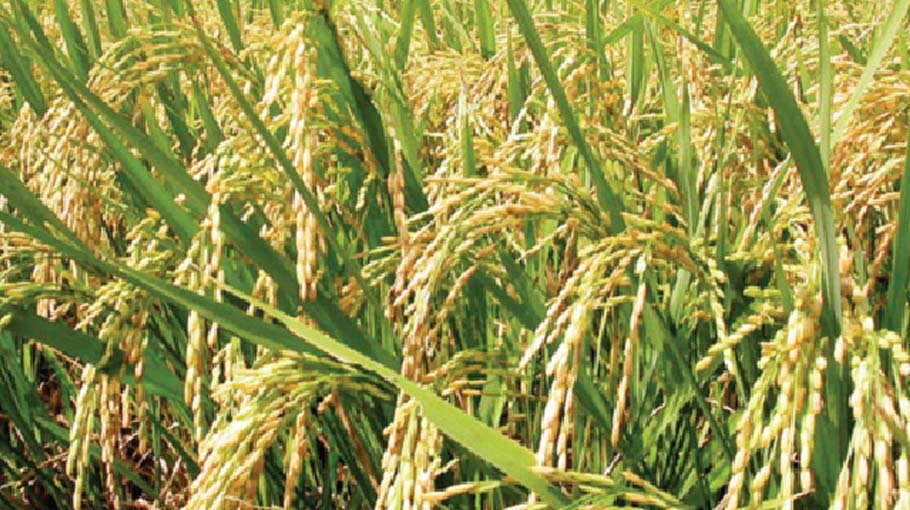Food autarky claimed, grain import bulky
Food import 29.09 lakh mts in 2023

Bangladesh imported around 29.09 lakh tonnes of food grains, including 9.97 lakh tonnes of rice and 19.12 lakh tonnes of wheat, in 2023, although the government claims the country is self-sufficient in food production.
According to the latest report of Food and Agriculture Organization (FAO), Bangladesh is the third largest food importer in the world, importing about 12.5 million tonnes of food products from the world market in 2021.
According to the FAO report, Bangladesh produced about 93.3 million tonnes of agricultural products in 2021 and imported about 12.5 million tonnes of food products from the world market this year.
Several ministers, government officials have said that from a bottomless basket, the country is self-sufficient in food production while surpluses in few crop productions.
Former Agriculture Minister Dr. Md. Abdur Razzque in September last year said that the country has become self-sufficient in rice, fish, meat and eggs, from the label of ‘food shortage’ country.
Food Minister Sadhan Chandra Majumder in October last year said, “Our country is now self-sufficient in food.”
In January, the Prime Minister said that Bangladesh has already achieved self-sufficiency in food.
According to the former agriculture minister, it takes Tk 20,000 crore to Tk 24,000 crore to import edible oil in the country every year. It also imports a large portion of basic food items ranging from pulses, maize, wheat to powdered milk. About 70 lakh to 75 lakh tonnes of wheat, which has become the second staple food of the country, has to be imported. Similarly, every year Bangladesh has to import more or less rice too.
According to the data of the Ministry of Food, the average growth rate of rice production from 2019-20 to 2021-22 fiscal year was 1 percent. In the current financial year (2023-24), the growth rate of rice production in the country is expected to be 1 percent or around like the recent years.
However, the rate of growth in rice production is lower than the rate of population growth. Shortage of rice compared to demand has become a normal thing.
Similarly, due to various reasons, production of the second food grain wheat has been limited to 11 lakh to 12 lakh tonnes recently as compared to 19 lakh tonnes in 1998-99.
On the other hand, against the demand of 25-26 lakh tonnes of pulses annually, the production is 8-9 lakh tonnes. Against the demand of 14-15 lakh tonnes of sugar per annum, the production is more or less 1 lakh tonnes. Against the annual demand of 22 lakh tonnes of onion, the production is more or less 19 lakh tonnes. Against the demand of 3 to 3.5 lakh tonnes of ginger per year, the production amount is around 2 to 2.5 lakh tonnes.
Meanwhile, a large amount of agricultural produce in the country is wasted every year due to lack of conservation. Several agricultural products that are produced beyond local demand are wasted due to short storage capacity.
To reduce import dependency, the government has taken a plan to increase the production of edible oil by 40 percent and the production of rice by 3.2 million tons.
Former governor of Bangladesh Bank Economist Dr. Atiur Rahman recently said that the agriculture economy did not get the importance in the country. In national development, the agricultural economy should be given much importance.
However, Agriculture Minister Dr Md Abdus Shahid said that they are putting importance on postharvest to increase production and reduce food waste in the country.
In agriculture, postharvest handling is the stage of crop production immediately following harvest, including cooling, cleaning, sorting and packing.
About aus production, the minister has also said that the government is giving incentives of TK 64.15 crore. At the same time, the minister has sought the cooperation of district commissioners to bring more uncultivated land under cultivation and safeguard crop land.
Secretary of the Ministry of Food Md. Ismail Hossain said that the country’s rice production is increasing gradually. We hope to create a new record of rice production this year too. With a gradual increase of food production we will reduce import dependency.
Although the export of rice from Bangladesh was prohibited at all times, there was an opportunity to export fragrant rice with the permission of the government. In July 2021, the government allowed 28 companies to export 25,000 tonnes of fragrant rice.
On September 10, in a meeting on ‘Problems of Agricultural Exports and Solutions’ presided over by the agriculture secretary, it was decided to stop the export of rice or fragrant rice to ensure food security.
Some of the key agricultural exports include jute and jute products, vegetables, and fruits like frozen potatoes, arum, pointed gourd, papaya, beans, bitter gourd, teasel gourd, snake gourd, sweet pumpkin, mango, jackfruit, lemon, litchi, pendant, Amara, guava, prunes, tea, flowers, various spices such as black seed, turmeric powder, chili powder, dry chili, biryani masala, curry masala, tobacco, beverages, dry foods, and more being shipped to various countries worldwide.



